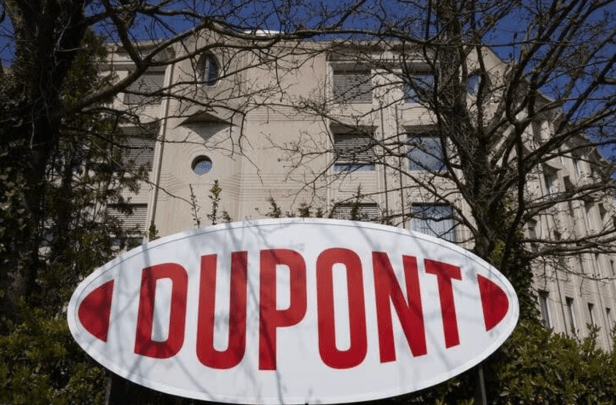Supreme Court won’t review $40 million DuPont PFAS verdict tied to cancer
November 21, 2023

Read the full article by Clark Mindock (Reuters)
“The U.S. Supreme Court on Monday refused to review a $40 million verdict against E.I. du Pont de Nemours & Co, preserving a legal win for an Ohio man who said toxic ‘forever chemicals’ released by the company into drinking water caused his cancer.
DuPont had asked the high court in June to review the case, saying its defense was hamstrung during Travis Abbott’s 2020 trial.
The company said Abbott’s case is unique, as are the thousands of lawsuits alleging that a West Virginia DuPont plant discharged cancer-causing Perfluorooctanoic acid (PFOA) into the Ohio River consolidated in multidistrict litigation (MDL) in Ohio federal court. DuPont claimed a lower court improperly restricted it from contesting findings that it negligently exposed people to PFOA from lawsuits that were tried earlier as test trials, or ‘bellwethers.’
Doing so kept the company from mounting a defense that key elements of the cases are different, including specifics of Abbott’s PFOA exposure, it said.
The company had asked the justices to determine the court cannot make the results from bellwether trials binding on the company in every other case within the MDL.
As is customary, the court’s order was issued without further explanation.
DuPont did not immediately respond to a request for comment. An attorney for Abbott said they are pleased with the court’s decision.
PFOA is among a class of chemicals called per- and polyfluoroalkyl substances, or PFAS, that are used in wide range of products including non-stick cookware and firefighting foams, and are associated with certain cancers, hormonal dysfunction and other diseases.
They are referred to as ‘forever chemicals’ because they don’t easily break down in the human body or nature.
The company appealed Abbott’s trial victory to the 6th U.S. Circuit Court of Appeals in 2021, arguing the bellwethers were never intended to be representative of every case in the MDL, many of which have settled.
DuPont argued Abbott’s circumstances were much different from the plaintiffs in the bellwether trials. For example, his water wells were up to 56 miles away from the plant, while two of the bellwether plaintiffs got water less than a mile away. Those differences could have convinced a jury Abbott’s injuries were not reasonably foreseeable to DuPont.
The 6th Circuit upheld the lower court’s decision, finding it was right to conclude that DuPont’s behavior impacted the plaintiffs in virtually identical ways, so it was appropriate to bar the company from relitigating arguments it had repeatedly lost before.
Dissenting from the high court’s decision not to grant review, Justice Clarence Thomas said Monday the bellwether trials were not meant to be representative of all the cases in the multidistrict litigation, and DuPont should not have been barred from contesting elements of negligence found in those earlier cases.
Justice Brett Kavanaugh said he would have heard the case.
The case is E.I. du Pont de Nemours & Co v. Abbott, U.S. Supreme Court, No. 23-13.
For DuPont: Paul Clement of Clement & Murphy
For Abbott: Matthew Wessler of Gupta Wessler”
This content provided by the PFAS Project.